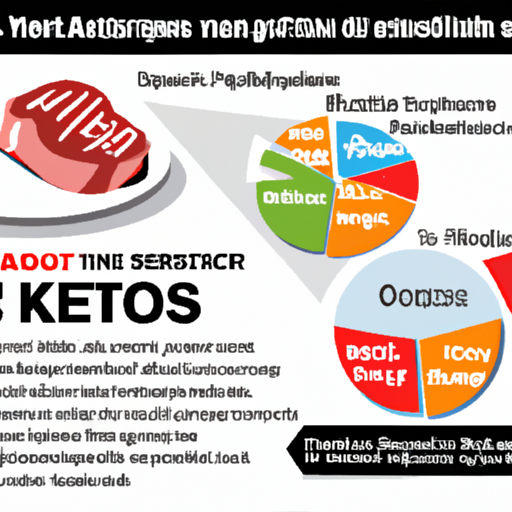In today’s article, we’re going to tackle a topic that you may have been wondering about: Is ketosis dangerous? It’s a question that many people have when it comes to the popular ketogenic diet, and we’re here to give you all the information you need to make an informed decision. So, let’s dive right in!
Curious to know more about the potential risks and benefits of ketosis? Well, you’re in luck! In this article, we’ll explore the various aspects of ketosis and discuss whether or not it poses any dangers to your health. We’ll delve into the science behind ketosis, examine its effects on the body, and address common concerns that people may have. So, if you’re interested in learning more about ketosis and whether or not it’s something you should be worried about, keep reading!
Understanding Ketosis
What is ketosis?
Ketosis is a metabolic state in which your body shifts from using carbohydrates as its primary source of energy to using fat. When you are in ketosis, your liver produces ketones, which are molecules that are used as an alternative fuel source for the body.
How does ketosis occur?
Ketosis occurs when your body doesn’t have enough carbohydrates to produce glucose for energy. This can happen when you follow a low-carb diet, such as the ketogenic diet, which restricts carbohydrate intake and promotes increased fat consumption. By severely limiting your carbohydrate intake, your body is forced to burn fat for fuel, leading to the production of ketones.
Why do people go into ketosis?
People may choose to enter ketosis for various reasons, including weight loss, improved insulin sensitivity, and reducing epilepsy seizures. Ketosis has been shown to be an effective strategy for losing weight as it promotes the burning of stored body fat. Additionally, ketosis has been found to improve insulin sensitivity, which can be beneficial for individuals with insulin resistance or type 2 diabetes. Ketogenic diets have also shown promise in reducing the frequency and severity of seizures in individuals with epilepsy.
Health Benefits of Ketosis
Weight loss
One of the main reasons why people choose to enter ketosis is for weight loss purposes. When your body is in ketosis, it becomes efficient at burning fat for fuel. This can lead to significant weight loss, especially in individuals who are overweight or obese.
Improved insulin sensitivity
Insulin is a hormone that helps regulate blood sugar levels. In individuals with insulin resistance or type 2 diabetes, their bodies struggle to properly utilize insulin, leading to elevated blood sugar levels. Ketosis has been shown to improve insulin sensitivity, allowing the body to better manage blood sugar levels. This improvement in insulin sensitivity can have numerous health benefits, including reduced risk of developing type 2 diabetes and improved overall metabolic health.
Reduced epilepsy seizures
The ketogenic diet, which induces ketosis, has been used for decades as a treatment for epilepsy, particularly in children. The diet has been shown to significantly reduce the frequency and severity of seizures in individuals with epilepsy, including those who don’t respond well to medication. While the exact mechanisms behind this effect are still not fully understood, it is believed that the ketones produced during ketosis have an anti-convulsant effect in the brain.

Are You a Ketosis Master? Take Our Quiz!
Potential Dangers of Ketosis
Ketoacidosis
One of the main concerns associated with ketosis is the risk of developing ketoacidosis. Ketoacidosis is a potentially life-threatening condition in which ketone levels in the blood become dangerously high, leading to a drop in blood pH. This condition typically occurs in individuals with type 1 diabetes who have inadequate insulin levels to regulate ketone production. It is important to note that ketoacidosis is different from nutritional ketosis, which occurs at much lower levels of ketones and is generally considered safe.
Nutrient deficiencies
Restricting carbohydrates, particularly certain types of fruits, vegetables, and whole grains, can lead to nutrient deficiencies. These foods are important sources of vitamins, minerals, and fiber, which are essential for overall health. It is crucial for individuals following a ketogenic diet to carefully plan their meals to ensure they are getting an adequate intake of essential nutrients.
Keto flu symptoms
When transitioning into ketosis, some individuals may experience what is commonly referred to as the “keto flu.” This is a collection of symptoms that can include fatigue, headaches, nausea, and irritability. These symptoms are temporary and typically subside within a few days to a couple of weeks as the body adjusts to using ketones as its primary fuel source.
Ketosis and Diabetes
Ketosis in type 1 diabetes
Individuals with type 1 diabetes are at a higher risk of developing ketoacidosis when in ketosis. Ketosis can occur in type 1 diabetes when insulin levels are insufficient to regulate blood sugar levels, leading to an increased production of ketones. It is crucial for individuals with type 1 diabetes to work closely with their healthcare team to monitor their ketone levels and adjust insulin dosages accordingly.
Managing ketosis in type 2 diabetes
For individuals with type 2 diabetes, entering ketosis can have beneficial effects on blood sugar control and insulin sensitivity. However, it is important to consult with a healthcare professional before embarking on a ketogenic diet, as certain medications may need to be adjusted to prevent low blood sugar levels.

Ketosis and Exercise
Effect of ketosis on athletic performance
The effect of ketosis on athletic performance is a topic of ongoing research and debate. While some studies suggest that ketosis may impair high-intensity exercise performance due to the limited availability of carbohydrates for energy, other studies have shown that athletes adapted to a ketogenic diet can perform at similar levels as those on a high-carbohydrate diet. Overall, the impact of ketosis on athletic performance may differ for each individual and may depend on factors such as training status, duration, and intensity of exercise.
Adapting to exercise in ketosis
It takes time for the body to adapt to using fat as its primary fuel source during exercise. This adaptation period, known as “keto-adaptation,” can last anywhere from a few weeks to a few months. During this time, individuals may experience a decline in exercise performance. As the body becomes more efficient at using fat for fuel, performance typically improves.
Ketosis and Heart Health
Effect of ketosis on cholesterol levels
There is conflicting research on the effect of ketosis on cholesterol levels. Some studies have shown that a ketogenic diet can lead to improvements in lipid profiles, including increased levels of HDL (good) cholesterol and decreased levels of LDL (bad) cholesterol. However, other studies have found no significant differences in cholesterol levels between a ketogenic diet and a high-carbohydrate diet.
Implications for cardiovascular health
While the impact of ketosis on cholesterol levels is still debatable, some studies suggest that a ketogenic diet may have other positive effects on cardiovascular health. These include reductions in blood pressure, triglycerides, and markers of inflammation, all of which are risk factors for heart disease. More research is needed to fully understand the long-term effects of ketosis on cardiovascular health.
Long-Term Effects of Ketosis
Studies on long-term ketosis
There is limited research on the long-term effects of ketosis, particularly when followed as a lifestyle. Most studies on ketogenic diets have focused on short-term results, such as weight loss and metabolic improvements. Long-term studies are needed to determine the potential benefits and risks associated with maintaining ketosis for an extended period.
Potential risks and benefits
While ketosis has shown potential benefits in weight loss, improved insulin sensitivity, and reduced epilepsy seizures, there are also potential risks associated with long-term ketosis. These include nutrient deficiencies, potential negative effects on gut health, and impacts on hormone levels. It is crucial to weigh the potential benefits against the potential risks and to work with a healthcare professional when considering long-term adherence to a ketogenic diet.
Safe Practices for Ketosis
Consulting with a healthcare professional
Before starting a ketogenic diet or entering ketosis, it is important to consult with a healthcare professional. They can provide guidance and support, especially if you have any underlying medical conditions or take medications that may be affected by ketosis. Additionally, a healthcare professional can help monitor your progress and make any necessary adjustments to ensure you are safely achieving your goals.
Properly monitoring ketone levels
If you choose to enter ketosis, it is essential to monitor your ketone levels regularly. This can be done using urine test strips, blood ketone meters, or breath analyzers. Monitoring ketone levels can help ensure that you are in a safe range and can also provide valuable information about how your body is responding to the diet or lifestyle.
Controversies Surrounding Ketosis
Debates among experts
There is ongoing debate among experts regarding the safety and effectiveness of ketosis as a long-term dietary approach. Some experts believe that ketosis can have numerous health benefits, while others raise concerns about potential risks and long-term sustainability. It is important to consider various viewpoints and make an informed decision based on your individual health goals and circumstances.
Conflicting research findings
The research on ketosis is still evolving, and there are conflicting findings on various aspects of its effects on health. Different studies have shown different results in terms of weight loss, cardiovascular health, and other outcomes. This highlights the need for more research to fully understand the implications of long-term ketosis.
Conclusion
In conclusion, ketosis can be both beneficial and potentially hazardous depending on various factors. It is essential to understand the potential dangers associated with ketosis, such as ketoacidosis and nutrient deficiencies. Consulting with a healthcare professional and practicing safe methods, such as properly monitoring ketone levels, are crucial steps to ensure your safety. Moreover, it is important to consider the controversies and conflicting research findings surrounding ketosis. By making informed decisions and monitoring your health, you can safely and effectively incorporate ketosis into your lifestyle if desired.
